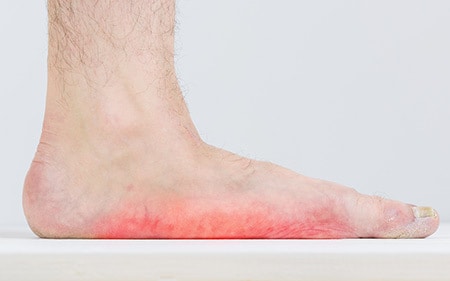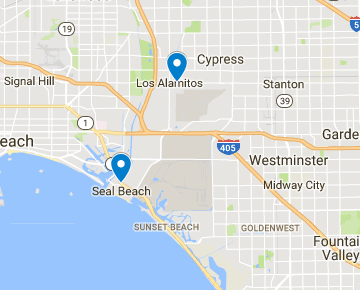Treatment for Adult-Acquired Flatfoot

Have you been feeling pain along the inside of the foot, near the ankle? Does it get worse with lots of activity or standing? Maybe you’ve noticed that your foot arches are flatter than before? You may be developing adult-acquired flatfoot.
The most common cause behind adult-acquired flatfoot is Posterior Tibial Tendon Dysfunction (PTTD). The posterior tibial tendon connects the calf muscle to the bones on the inside of the feet and hold up the arch. Injury or overuse can cause the arches to become inflamed or torn, resulting in the eventual tearing or collapsing of the arch. It’s most likely to happen to people who endure high impact on the bottoms of the feet, like in certain running and jumping sports.
Other causes include: Arthritis, Charcot Foot (diabetes), traumatic injury, and even obesity.
Treatment depends on how far along adult-acquired flatfoot has progressed. Are you just experiencing pain? Or is the foot’s arch completely gone and won’t reappear when you lift your heel?
Our podiatrists will recommend one or more of the following:
- Orthotics, Cast/Boot Immobilization, Richie Brace. Depending on the progression of the deformity, the first treatment consideration is to rest the feet to prevent worsening symptoms and use orthotic inserts for extra support. For adult-acquired flatfoot that has further progressed, our podiatrists may suggest a custom cast or brace, such as the Richie Brace (created by our very own Dr. Richie).
- Physical therapy. In conjunction with rest and immobilization, physical therapy could be prescribed to rehabilitate the tendons and strengthen muscles.
- Plasma-Rich Platelets (PRP). This minimally invasive procedure, commonly used for wound care, uses your own plasma to promote healing of the affected tendons and surrounding soft tissues.
- Surgery. If the problem has progressed to the point of rigid flat feet, those experiencing excessive pain may need surgery for bone or joint fusions.
What treatments would work best for you? Make an appointment today at Alamitos-Seal Beach Podiatry Group for treatment recommendations after a thorough assessment. One of our board-certified podiatrists, Dr. Douglas H. Richie, Dr. Jeremy L. Cook, and Dr. Faye E. Izadi will be happy to help at our offices in Seal Beach, CA and Los Alamitos, CA in Orange County.





